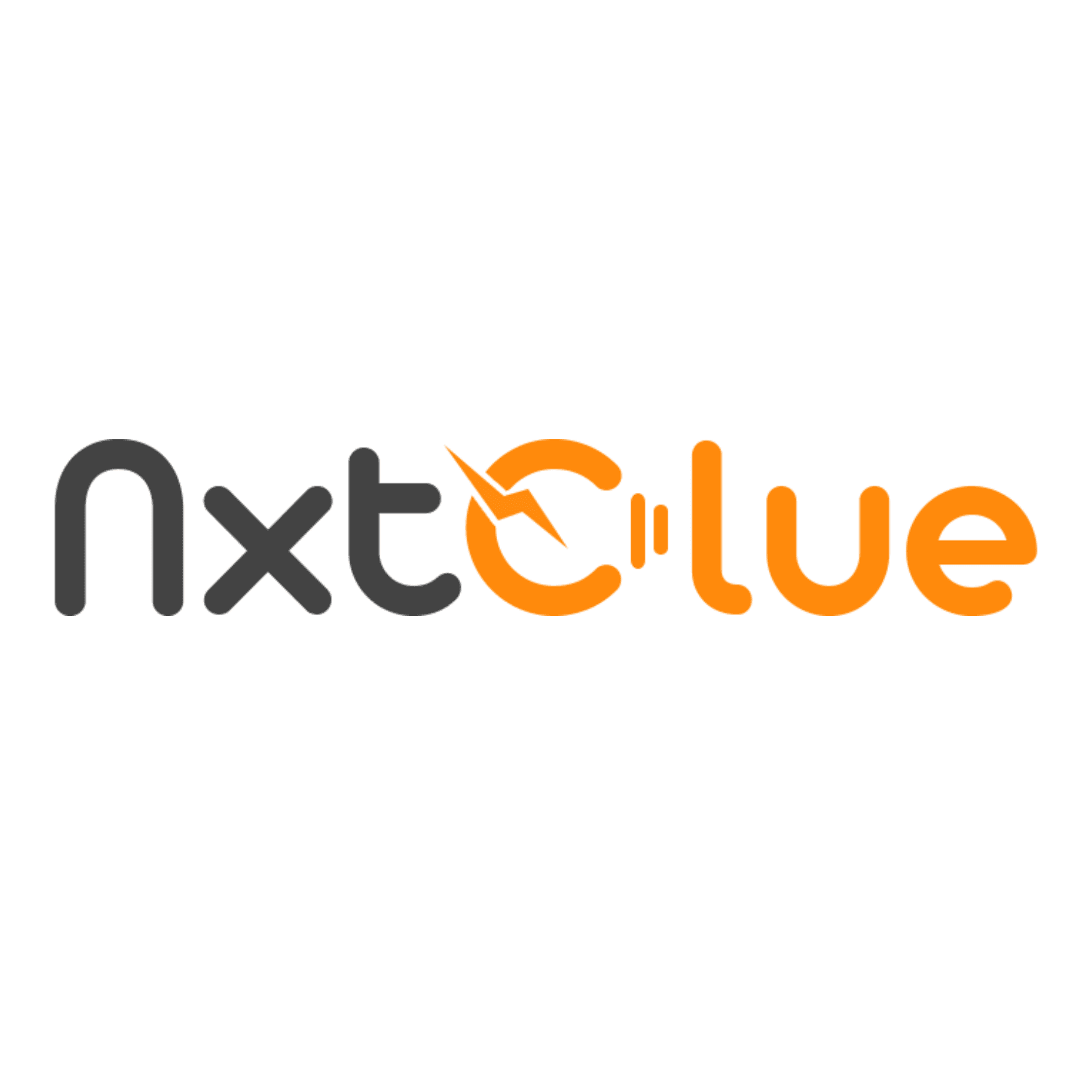Mid Phase
How Mid-Career Professionals Can Access Continuous Development: Overcoming Learning Barriers for Growth

Team NxtClue
|
7 mins
|
Sep 1, 2024

0:00/1:34
Don't have enough time to read?
Listen

How Mid-Career Professionals Can Access Continuous personality Development courses: Overcoming Learning Barriers for Growth
Imagine this: You’ve spent years honing your skills and building a solid career foundation. You’re ambitious, eager to learn, and ready to take on new challenges. Yet, every time you look for opportunities to grow—whether it’s a specialized training program, a workshop, or a chance to be mentored—there’s a roadblock. The opportunities seem few and far between, and you’re left wondering, How do I keep learning and advancing when the resources just aren’t there?
If this situation feels all too familiar, you’re not alone. Many mid-career professionals face the frustration of limited access to learning and self development opportunities within their organizations. Even though the desire for continuous learning is strong, the avenues to acquire new skills or gain mentorship often seem closed or out of reach. The good news is that there are ways to overcome these barriers and take charge of your personality development training. Let’s explore how you can break through the learning barrier and ensure continuous growth in your career.
Does This Sound Like You?
Meet Shalini
Shalini has been a Marketing Manager for over eight years, with a passion for digital marketing and data analytics. She’s eager to expand her skills in these areas, but she’s frustrated by the lack of relevant training programs and workshops available in her organization. Shalini feels stuck, unsure how to continue her learning journey without access to the necessary resources. Like Shalini, many mid-career professionals crave continuous learning but are hindered by limited access to development opportunities.
If you’re nodding along, don’t worry—you’re not alone. Overcoming the frustration of limited access to learning opportunities is possible. Here’s how to take control of your development and ensure continuous growth, regardless of your organization’s resources.
Strategies for Continuous Learning and Development
1. Take Ownership of Your Learning Journey
The first step to overcoming limited access to learning opportunities is to take ownership of your development. Waiting for your organization to provide training or mentorship can lead to stagnation. Instead, be proactive about identifying your learning needs and finding ways to meet them.
Solution: Conduct a self-assessment to identify the skills and knowledge areas you want to develop. Research available resources—such as online self development courses, webinars, podcasts, and books—that align with your learning goals. Create a personalized learning plan that outlines your objectives, resources, and timelines.
Tip:
“Set aside dedicated time each week for personality development training. Treat this time as non-negotiable, just like any other work meeting, to ensure you prioritize your growth.”
2. Leverage Online Learning Platforms and Resources
In today’s digital age, countless online learning platforms offer courses, certifications, and resources on various topics. These platforms can provide the flexibility and accessibility you need to continue learning, regardless of your organization’s offerings.
Solution: Explore online learning platforms such as Coursera, Udemy, LinkedIn Learning, and edX to find courses relevant to your career goals. Many of these platforms offer free or affordable courses, allowing you to learn at your own pace and gain new skills.
Tip:
“Look for courses that offer certificates of completion or recognized certifications to add to your resume and LinkedIn profile. This can enhance your credibility and demonstrate your commitment to continuous learning.”
3. Seek Out Mentorship and Peer Learning Opportunities
While formal mentorship programs may be limited in your organization, informal mentorship and peer learning opportunities can be valuable. Building relationships with colleagues, industry peers, and thought leaders can provide insights, guidance, and support for your development.
Solution: Identify potential mentors within or outside your organization who can offer guidance and support. Reach out to them with a clear purpose and request for mentorship. Additionally, engage in peer learning by joining professional networks, online communities, or mastermind groups where you can learn from others’ experiences.
Tip:
“Consider starting a peer mentorship group within your organization or industry. Regular meetings can provide a platform for sharing knowledge, discussing challenges, and offering mutual support.”
4. Advocate for Learning and Development in Your Organization
Advocating for more learning and development opportunities within your organization can create a positive change for yourself and your colleagues. Expressing the need for continuous learning can encourage your organization to invest in more training programs, workshops, and mentorship opportunities.
Solution: Speak with your manager or HR team about your desire for continuous learning and the types of programs or resources you’d like to see. Present a business case that highlights the benefits of investing in employee development, such as increased productivity, innovation, and employee retention.
Tip:
“Propose a ‘learning and development committee’ within your organization to explore and recommend training opportunities. Volunteering to lead or participate in this committee can also showcase your commitment to growth and leadership.”
5. Attend Industry Events and Conferences
Industry events and conferences are excellent opportunities for learning, networking, and staying updated on the latest trends and best practices. These events often feature expert speakers, workshops, and panels that provide valuable insights and learning experiences.
Solution: Identify and attend relevant industry events, conferences, and webinars. Prepare in advance by researching speakers and topics, and actively participate in discussions and networking opportunities. Follow up with speakers or attendees to continue learning and build relationships.
Tip:
“If attending in person isn’t feasible, look for virtual events or recorded sessions that offer the same learning opportunities. Many conferences now provide online access to their content.”
6. Embrace Self-Learning and Curiosity
A growth mindset and curiosity are powerful tools for continuous learning. Embracing self-learning means being open to exploring new topics, asking questions, and seeking out new knowledge, even outside formal programs.
Solution: Cultivate a habit of self-learning by exploring diverse topics that interest you. Read books, listen to podcasts, watch TED Talks, and follow thought leaders in your field. Be curious and open to learning from different perspectives and experiences.
Tip:
“Create a ‘learning list’ of books, podcasts, and resources you want to explore. Set a goal to engage with at least one new resource each week to keep your learning journey dynamic and engaging.”
7. Share Your Knowledge and Skills
One of the best ways to learn is to teach. Sharing your knowledge and skills with others can reinforce your learning, build your confidence, and establish you as a thought leader in your field. It also encourages a culture of continuous learning within your organization.
Solution: Look for opportunities to share your knowledge through presentations, workshops, or articles. Offer to lead a training session for your team or write a blog post on a topic you’re passionate about. Sharing your expertise not only helps others but also reinforces your own learning.
Tip:
“Consider starting a personal blog or contributing to industry publications. Sharing your insights and experiences can help you build a personal brand and connect with like-minded professionals.”
Wrapping Up
Limited access to learning and development opportunities can be frustrating for mid-career professionals who are eager to grow. However, by taking ownership of your learning journey, leveraging online resources, seeking mentorship, advocating for development, attending industry events, embracing self-learning, and sharing your knowledge, you can overcome these barriers and continue advancing in your career.
Ready to break through the learning barrier and keep growing? Start implementing these strategies today, and remember—your development is in your hands, and there are always new ways to learn, grow, and succeed.
How Mid-Career Professionals Can Access Continuous personality Development courses: Overcoming Learning Barriers for Growth
Imagine this: You’ve spent years honing your skills and building a solid career foundation. You’re ambitious, eager to learn, and ready to take on new challenges. Yet, every time you look for opportunities to grow—whether it’s a specialized training program, a workshop, or a chance to be mentored—there’s a roadblock. The opportunities seem few and far between, and you’re left wondering, How do I keep learning and advancing when the resources just aren’t there?
If this situation feels all too familiar, you’re not alone. Many mid-career professionals face the frustration of limited access to learning and self development opportunities within their organizations. Even though the desire for continuous learning is strong, the avenues to acquire new skills or gain mentorship often seem closed or out of reach. The good news is that there are ways to overcome these barriers and take charge of your personality development training. Let’s explore how you can break through the learning barrier and ensure continuous growth in your career.
Does This Sound Like You?
Meet Shalini
Shalini has been a Marketing Manager for over eight years, with a passion for digital marketing and data analytics. She’s eager to expand her skills in these areas, but she’s frustrated by the lack of relevant training programs and workshops available in her organization. Shalini feels stuck, unsure how to continue her learning journey without access to the necessary resources. Like Shalini, many mid-career professionals crave continuous learning but are hindered by limited access to development opportunities.
If you’re nodding along, don’t worry—you’re not alone. Overcoming the frustration of limited access to learning opportunities is possible. Here’s how to take control of your development and ensure continuous growth, regardless of your organization’s resources.
Strategies for Continuous Learning and Development
1. Take Ownership of Your Learning Journey
The first step to overcoming limited access to learning opportunities is to take ownership of your development. Waiting for your organization to provide training or mentorship can lead to stagnation. Instead, be proactive about identifying your learning needs and finding ways to meet them.
Solution: Conduct a self-assessment to identify the skills and knowledge areas you want to develop. Research available resources—such as online self development courses, webinars, podcasts, and books—that align with your learning goals. Create a personalized learning plan that outlines your objectives, resources, and timelines.
Tip:
“Set aside dedicated time each week for personality development training. Treat this time as non-negotiable, just like any other work meeting, to ensure you prioritize your growth.”
2. Leverage Online Learning Platforms and Resources
In today’s digital age, countless online learning platforms offer courses, certifications, and resources on various topics. These platforms can provide the flexibility and accessibility you need to continue learning, regardless of your organization’s offerings.
Solution: Explore online learning platforms such as Coursera, Udemy, LinkedIn Learning, and edX to find courses relevant to your career goals. Many of these platforms offer free or affordable courses, allowing you to learn at your own pace and gain new skills.
Tip:
“Look for courses that offer certificates of completion or recognized certifications to add to your resume and LinkedIn profile. This can enhance your credibility and demonstrate your commitment to continuous learning.”
3. Seek Out Mentorship and Peer Learning Opportunities
While formal mentorship programs may be limited in your organization, informal mentorship and peer learning opportunities can be valuable. Building relationships with colleagues, industry peers, and thought leaders can provide insights, guidance, and support for your development.
Solution: Identify potential mentors within or outside your organization who can offer guidance and support. Reach out to them with a clear purpose and request for mentorship. Additionally, engage in peer learning by joining professional networks, online communities, or mastermind groups where you can learn from others’ experiences.
Tip:
“Consider starting a peer mentorship group within your organization or industry. Regular meetings can provide a platform for sharing knowledge, discussing challenges, and offering mutual support.”
4. Advocate for Learning and Development in Your Organization
Advocating for more learning and development opportunities within your organization can create a positive change for yourself and your colleagues. Expressing the need for continuous learning can encourage your organization to invest in more training programs, workshops, and mentorship opportunities.
Solution: Speak with your manager or HR team about your desire for continuous learning and the types of programs or resources you’d like to see. Present a business case that highlights the benefits of investing in employee development, such as increased productivity, innovation, and employee retention.
Tip:
“Propose a ‘learning and development committee’ within your organization to explore and recommend training opportunities. Volunteering to lead or participate in this committee can also showcase your commitment to growth and leadership.”
5. Attend Industry Events and Conferences
Industry events and conferences are excellent opportunities for learning, networking, and staying updated on the latest trends and best practices. These events often feature expert speakers, workshops, and panels that provide valuable insights and learning experiences.
Solution: Identify and attend relevant industry events, conferences, and webinars. Prepare in advance by researching speakers and topics, and actively participate in discussions and networking opportunities. Follow up with speakers or attendees to continue learning and build relationships.
Tip:
“If attending in person isn’t feasible, look for virtual events or recorded sessions that offer the same learning opportunities. Many conferences now provide online access to their content.”
6. Embrace Self-Learning and Curiosity
A growth mindset and curiosity are powerful tools for continuous learning. Embracing self-learning means being open to exploring new topics, asking questions, and seeking out new knowledge, even outside formal programs.
Solution: Cultivate a habit of self-learning by exploring diverse topics that interest you. Read books, listen to podcasts, watch TED Talks, and follow thought leaders in your field. Be curious and open to learning from different perspectives and experiences.
Tip:
“Create a ‘learning list’ of books, podcasts, and resources you want to explore. Set a goal to engage with at least one new resource each week to keep your learning journey dynamic and engaging.”
7. Share Your Knowledge and Skills
One of the best ways to learn is to teach. Sharing your knowledge and skills with others can reinforce your learning, build your confidence, and establish you as a thought leader in your field. It also encourages a culture of continuous learning within your organization.
Solution: Look for opportunities to share your knowledge through presentations, workshops, or articles. Offer to lead a training session for your team or write a blog post on a topic you’re passionate about. Sharing your expertise not only helps others but also reinforces your own learning.
Tip:
“Consider starting a personal blog or contributing to industry publications. Sharing your insights and experiences can help you build a personal brand and connect with like-minded professionals.”
Wrapping Up
Limited access to learning and development opportunities can be frustrating for mid-career professionals who are eager to grow. However, by taking ownership of your learning journey, leveraging online resources, seeking mentorship, advocating for development, attending industry events, embracing self-learning, and sharing your knowledge, you can overcome these barriers and continue advancing in your career.
Ready to break through the learning barrier and keep growing? Start implementing these strategies today, and remember—your development is in your hands, and there are always new ways to learn, grow, and succeed.
0:00/1:34
Don't have enough time to read?
Listen


7 mins
Mid Phase
How Mid-Career Professionals Can Access Continuous Development: Overcoming Learning Barriers for Growth

Team NxtClue
|
Sep 1, 2024
Copyright © 2024 NxtClue | All Rights Reserved

I May Not Be the Menu, But I Can Still Guide You – I Know Some Shortcuts!
With us
Decision is yours
Without us

Copyright © 2024 NxtClue | All Rights Reserved

I May Not Be the Menu, But I Can Still Guide You – I Know Some Shortcuts!
With us
Decision is yours
Without us

Related Blogs
Related Blogs

I May Not Be the Menu, But I Can Still Guide You – I Know Some Shortcuts!
With us
Decision is yours
Without us

Copyright © 2024 NxtClue | All Rights Reserved



